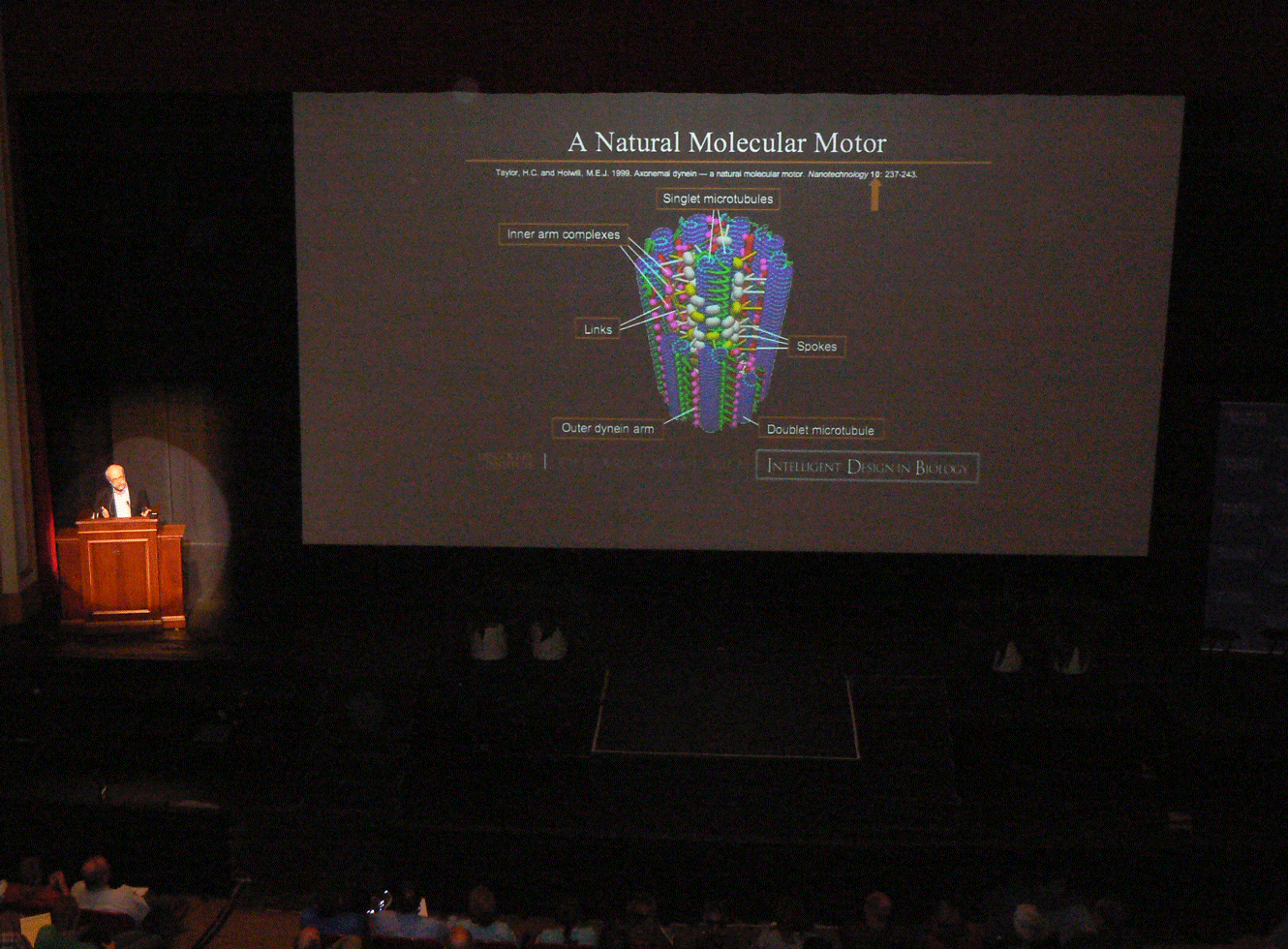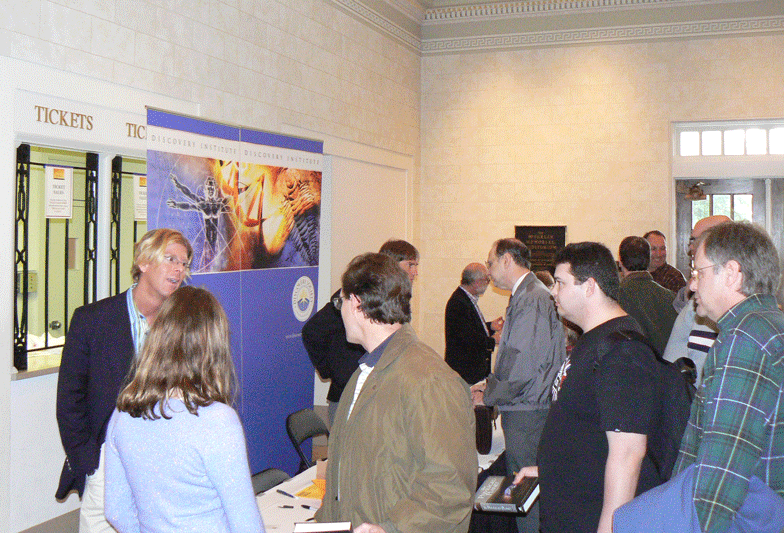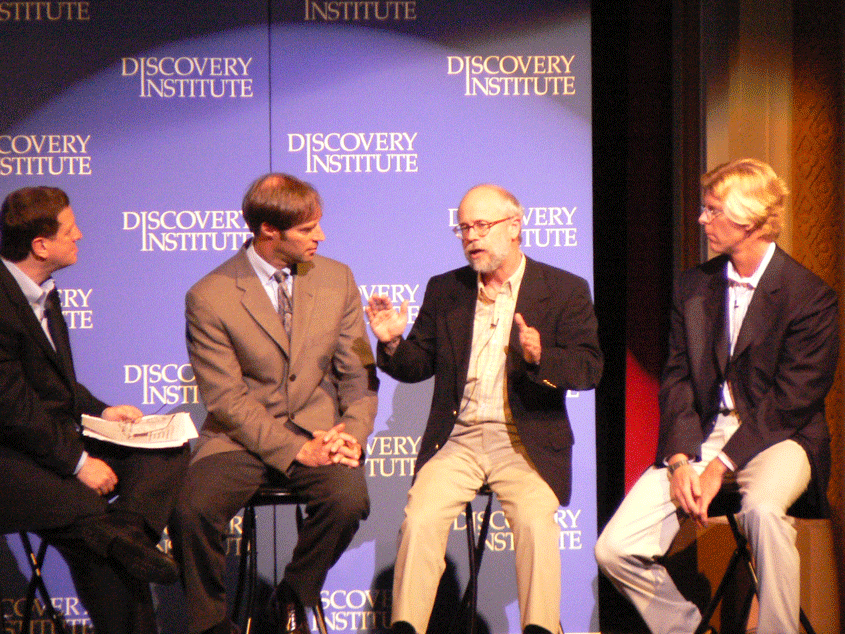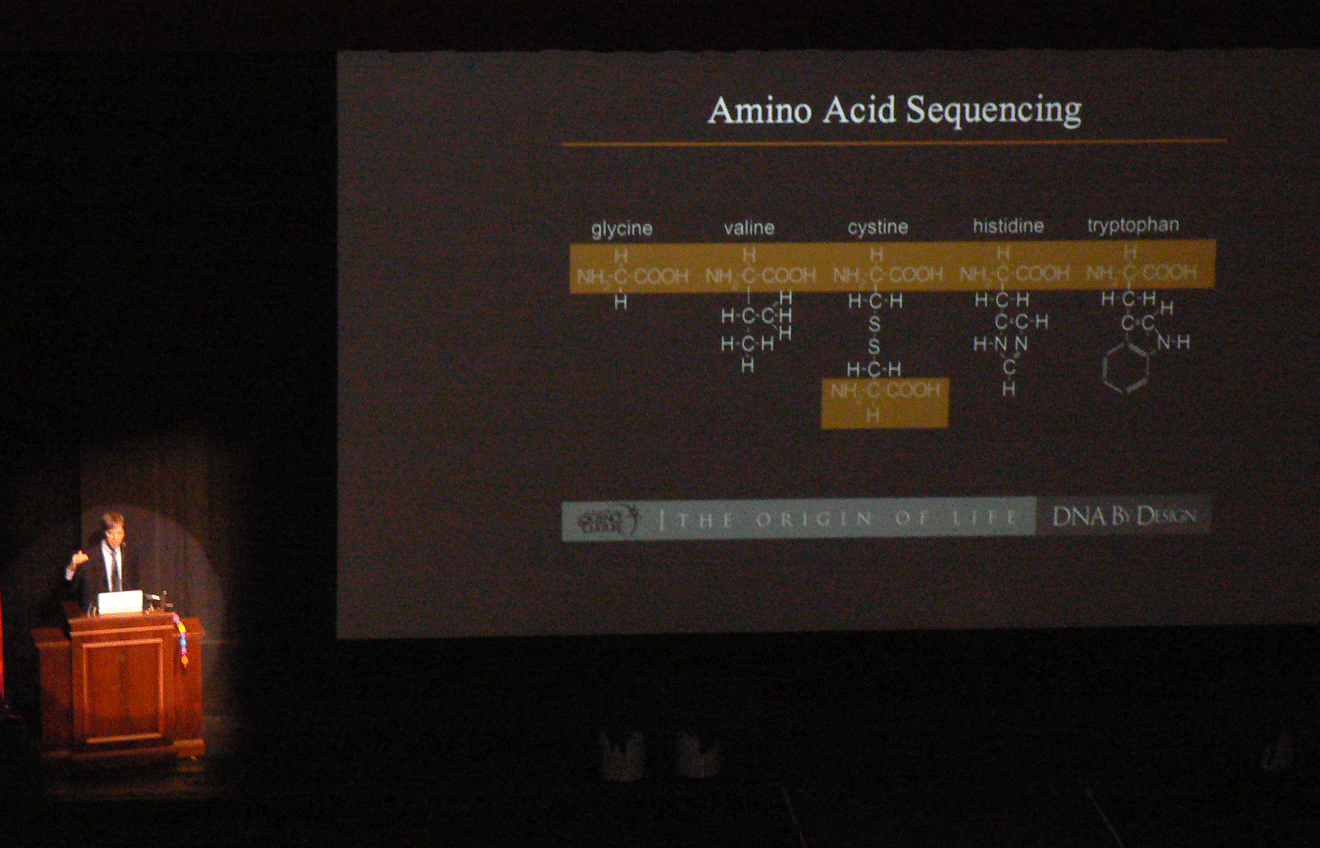 Intelligent Design
Intelligent Design
Science Presentations at Darwin vs. Design Draw Praise from Attendees
It is interesting that the vast majority of those who criticized the recent Darwin vs. Design conferences in Knoxville and Dallas as unscientific didn’t even bother to attend the conferences. If they had, they would have seen very detailed and technical (at times almost too technical) science presentations from Jay Richards, Steve Meyer and Michael Behe.

Dr. Behe gives his presentation on molecular machines in the cell.
Here is a write up from Dr. Mark Krejchi who attended the Dallas conference and found it to be very much focused on the science of intelligent design. And, Dr. Krejchi knows a thing or two about science having a PhD in Polymer Science and Engineering followed by a couple of postdoc stints at Caltech (Chemistry and Chemical Engineering Division) and Stanford University (Chemistry Department).
The conference was excellent. There was a good size crowd present during both sessions, even considering the very poor weather on Friday night. On Saturday, I would guess that the first floor of the auditorium was about 85-90% full, with a broad distribution of ages. I could not see if the balcony sections were inhabited.
Conference speakers closed the conrference by answering quesitons from the audience.
The structure of the conference was well designed. The introduction by Lee Strobel regarding his personal search that led to his understanding of ID and the power that this theory has for rationally explaining the scientific findings of researchers across a variety of different disciplines established an excellent foundation from which to build on during the second day of the conference.Jay Richards’ talk was well received and his ability to distill the astrophysical evidence for the universal constants and their role in defining the unique position the earth inhabits in the universe was compelling. In addition, his inference that this position was not serendipitous but established by design, by an intelligent force for an intelligent, rational agent that would naturally inquire as to the construction, purpose, and exploitation of its surroundings was very insightful.
Dr. Meyer gives his presentation on digital code in DNA.
Steve Meyer’s talk was a bit more challenging. This was appropriate because covering the background material was necessary to ensure that the broad audience present would have a basis for understanding the implications of the complexity and specificity of the DNA structure, so that the conclusion could be established that the these two properties are the twin pillars that define information. Once this foundation was established, Steve did a great job driving home two points; (i). that the Darwinian mechanism composed of an undirected process that relies on random mutation and natural selection cannot produce the vast amounts of information required to create, let alone sustain, the complex life that scientific evidence demands, and (ii). that ID provides the most reasonable explanations available for not only the creation of the information inherent to DNA, but also provides for the complex biochemical pathways that are necessary to sustain life as well as for the mechanism of heritance between subsequent generations.Finally, Mike Behe’s talk, although a bit truncated because of time, made an excellent closing argument that the cooperative complexity, that provides the cornerstone for irreducibly complex biological systems, cannot be justified by a Darwinian mechanism that relies on subtle, small scale changes accumulated over an undefined, large number of generations that are incrementally selected by blind forces. Subsequently, he most convincingly argued that the complex structural organization of the biological components common to even the most simple living systems coupled with the clear purpose that defines their function could best be explained by the action of an intelligent designer. His emphasis that the inference to intelligent design was in common usage by everyone when we stumble along articles of unknown origin that have the appearance of structure and purpose, I believe, made a powerful connection with the audience.

Conference attendees had chances both days to interact directly with the scientists, get books signed and have their questions answered.
We also received a lot of great feedback via comment cards. Here are a few of those.
Roseanne
This was an awesome conference.
Jan
Great conference! Thank you for putting it on.
Taylor
Thank you for coming to Dallas, the conference was awesome! I enjoyed learning about the things that support intelligent design and am now encouraged to read more about it.
(Dr.) Tony
Conference is top shelf quality in all components. Very well researched, eloquently delivered yet understandably spoken. Hope this is the first of many.
Donald
Greatly appreciate your commitment to seeking truth.
Doug
Great conference. You have given proof (beyond reasonable doubt) that there is an Intelligent Designer.
Nathan
I’ve enjoyed the conference immensely.
Kelly
Thank you so much for this amazing conference.
John
As an engineer and senior member of IEEE, I am incredibly glad I attended.
Melody
Thanks — awesome info. That will really help me as I teach both sides fairly in my high school biology classroom.


